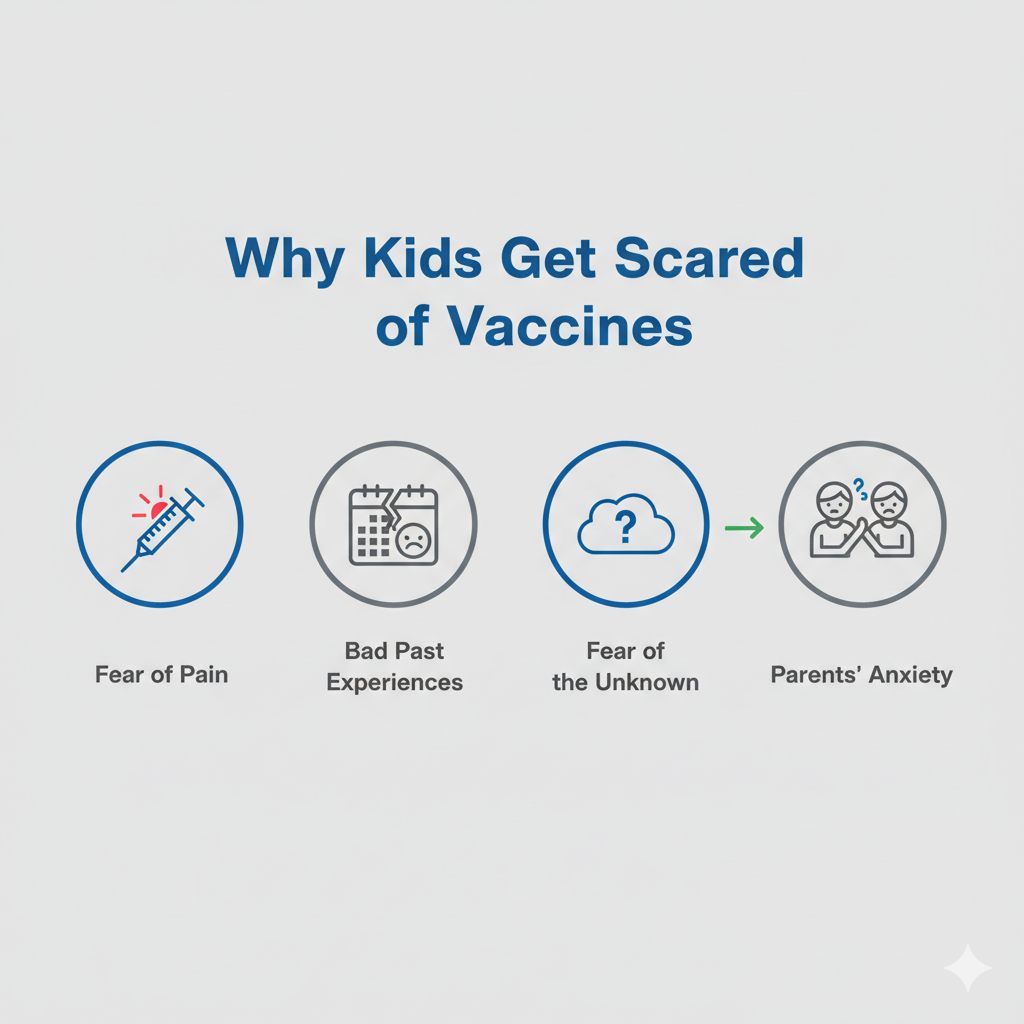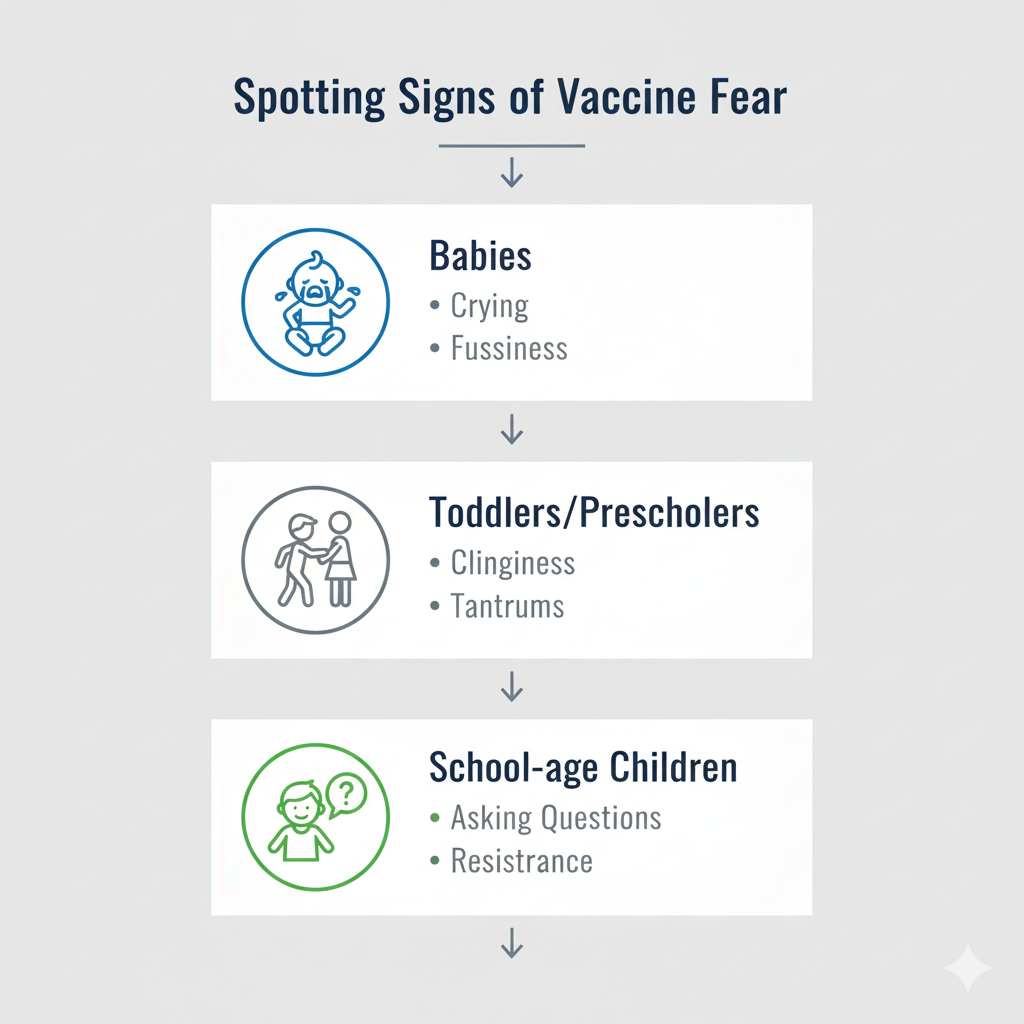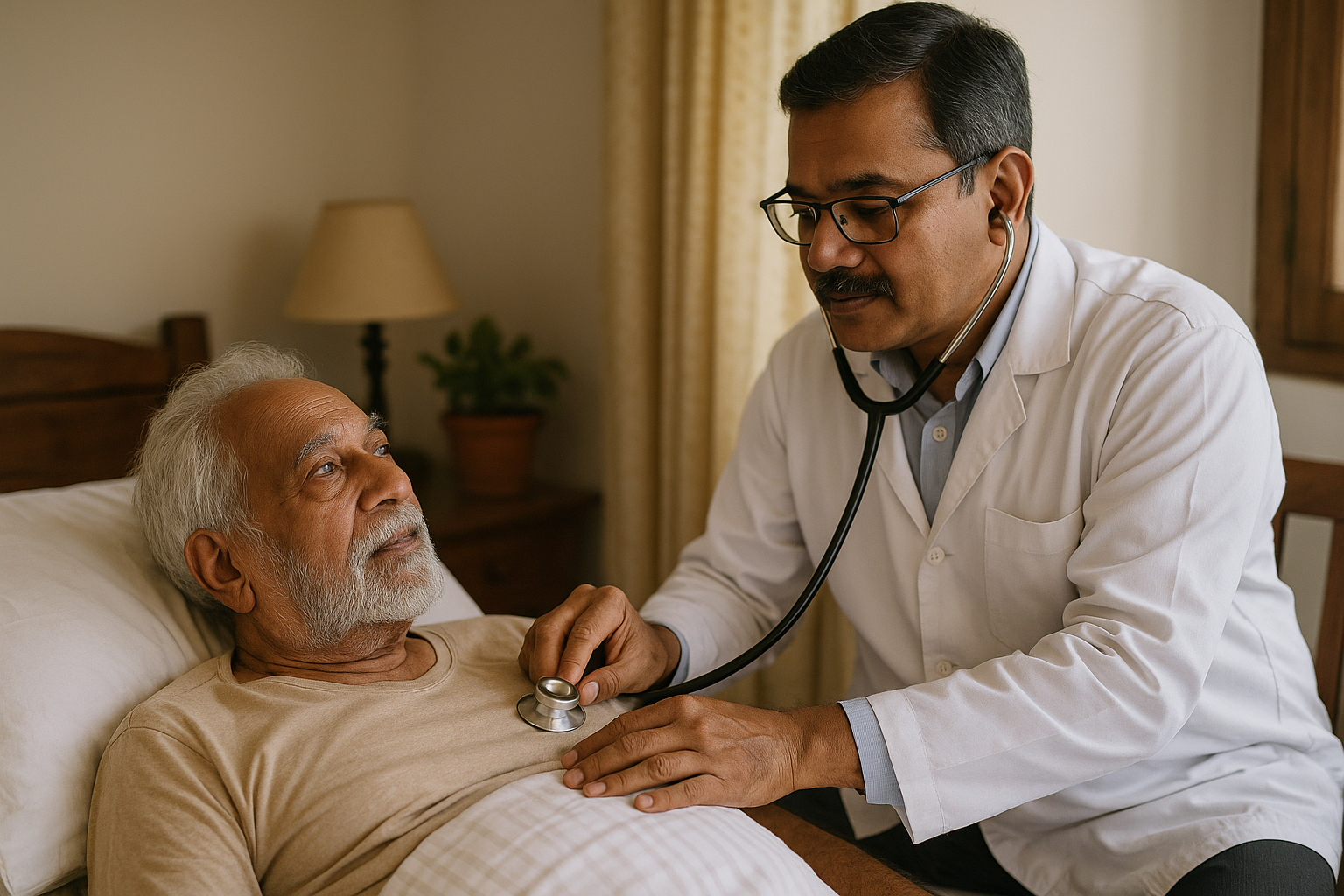Shots can be scary for kids. Many children get upset when they hear about getting a vaccine. This fear is normal, but parents can help make it better.
When kids are afraid of vaccines, it can cause problems. They might refuse to get important shots that keep them healthy. Parents and doctors need to work together to help children feel safer about vaccines.
Dr. Morepen Home knows how hard this can be for families. They help parents learn ways to make vaccine visits easier for everyone.
Why Kids Get Scared of Vaccines
Several things make children afraid of shots. The biggest fear is pain. Most kids think needles will hurt a lot. This worry can make them very upset.
Bad experiences from the past also cause fear. If a child had a painful shot before, they might remember it. This makes them scared of all future vaccines.
Not knowing what will happen is another big problem. Kids worry about the unknown. They might think terrible things will happen during the shot.

Parents' feelings matter too. Children pick up on adult emotions. If mom or dad seems nervous about vaccines, kids notice this. They start to feel scared as well.
Why We Need to Help Early
Fixing vaccine fear early is very important. If we don't help children when they're young, the problem gets worse. Fear can grow bigger over time.
Early help creates better relationships with doctors. Kids learn that medical visits aren't scary. This helps them feel comfortable getting healthcare throughout their lives.
When children aren't afraid, they get all their vaccines on time. This keeps them protected from dangerous diseases. It also helps keep everyone in the community healthy.
Helping with vaccine anxiety supports both physical and emotional health. Kids stay safe from illness and feel better about medical care.
Spotting Signs of Vaccine Fear
Children show vaccine anxiety in different ways. Physical signs include sweating, fast heartbeat, or shaking. Some kids feel sick to their stomach or dizzy.
Emotional signs are easier to see. Kids might cry, refuse to talk about shots, or become very clingy. They could have tantrums or hide when it's time for vaccines.
Different ages react differently
Babies can only cry or get fussy. They can't tell you they're scared with words.
Toddlers and preschoolers might cling to parents or throw fits. They often resist going to the doctor's office.

School-age children ask lots of questions. They want to know if shots will hurt or why they need them.
It's important to know the difference between normal nerves and real anxiety. A little worry is okay. But intense fear that causes panic needs more help.
Getting Your Child Ready for Vaccines
Talking honestly with your child helps reduce fear. Use simple words they understand. Explain what will happen, but don't make it sound scary.
Tell them why vaccines are important. Say that shots help keep them from getting sick. Use words that match their age level.
Let kids ask questions. Answer them honestly. This shows you care about their feelings. It helps build trust.

Creating a calm routine before vaccine visits helps too. Practice deep breathing together. Bring a favorite toy or blanket for comfort.
Plan something fun after the appointment. This gives children something good to think about. They know something nice is coming after the shot.
Helpful Tools to Reduce Fear
Role playing works well for many kids. Use dolls or action figures to practice getting shots. This makes the real thing less mysterious.
Books and videos about vaccines can help. Choose ones made for children. These explain vaccines in a friendly way.
Relaxation techniques are useful too. Teach kids to breathe slowly and deeply. Practice this before the appointment.
Making the Vaccine Visit Easier
Distractions work very well during shots. Tell interesting stories or read favorite books. Play simple games like "I Spy" to keep their mind busy.
Music and videos can help too. Let children listen to calm songs or watch short clips on a phone or tablet.

Your presence matters most. Hold your child's hand or let them sit on your lap. Use a gentle voice to encourage them. Say things like "You're doing great" or "It's almost over."
Be understanding about their feelings. Tell them it's okay to be scared. This shows you care and helps them trust you.
Work with your healthcare team. Tell nurses and doctors about your child's fears ahead of time. They can prepare special ways to help your child feel better.
Schedule appointments when your child is well-rested and fed. Tired or hungry kids have a harder time coping with stress.
After the Vaccine
Some discomfort after shots is normal. Put a cool, damp cloth on the injection site to reduce pain and swelling. Ask your doctor about children's pain medicine if needed.
Gentle arm movements help prevent stiffness. Encourage light activities your child enjoys.
Emotional support is just as important as physical care. Praise your child for being brave. Let them talk about how they feel or draw pictures about their experience.
Give them quiet time to relax after vaccines. Reading, watching a favorite show, or quiet play all help children feel safe and calm.
%20(1).png)
Using Praise to Help Future Visits
Positive words make a big difference. Celebrate the fact that your child got their vaccine. This could be simple praise or a small treat afterward.
Consider reward systems. Stickers, certificates, or small prizes can make the experience feel positive. This helps children remember vaccines as good things.
Share success stories. Tell your child how well they handled the situation. This builds their confidence for next time.
When to Get More Help
Sometimes children need extra support beyond what parents can provide. Watch for signs of severe fear that interferes with daily life.
Look for panic attacks, trouble breathing, or fainting related to medical procedures. If your child refuses all medical care or can't function normally because of vaccine fear, it's time to get professional help.
Mental health professionals who work with children can provide specialized treatment. They have special training in helping kids overcome intense fears.
Work closely with your child's healthcare team. Share information about your child's anxiety. Develop a plan together that includes extra time, privacy, or special techniques to help during visits.
Keep talking with all the professionals involved in your child's care. Monitor progress and make changes to the plan as needed.
Dr. Morepen Home offers expert guidance for families dealing with vaccine anxiety. Their healthcare professionals understand how to make medical care less frightening for children. They provide support and resources to help families create positive healthcare experiences. For more information about home visit healthcare advantages, explore their helpful resources.
.png)
Creating Better Vaccine Experiences
Helping children with vaccine anxiety takes patience and understanding. By recognizing their fears and using caring strategies, parents can make shots much easier.
Good communication, calming routines, and distraction techniques turn scary experiences into manageable ones. This builds trust in medical care that lasts a lifetime.
These efforts help right away and provide long-term benefits. Children stay up-to-date with important vaccines and develop healthy attitudes toward healthcare. Working together with healthcare providers like Dr. Morepen Home gives families the tools they need to make vaccination less frightening and more positive for everyone involved.
Frequently Asked Questions
How can I prepare my child for their first vaccination?
Start by explaining the process in simple terms. Tell them vaccines help keep them healthy. Practice calm breathing or other relaxation methods. Bring a comfort item like a favorite toy. Role-play with toy medical kits to make the experience less mysterious.
Is fear of needles a common issue in children?
Yes, needle fear is very common in kids. It comes from expecting pain, bad past experiences, or fear of the unknown. Use distractions during the procedure, comfort from parents, and praise afterward to help reduce this fear.
What if my child refuses to get a vaccine due to anxiety?
Be patient and understanding if your child refuses vaccines because of fear. Listen to their worries and address any wrong ideas they might have. Give them choices, like picking the appointment time or bringing a special toy. Work with healthcare providers who know how to handle anxiety.
How can parents address their own anxiety about their child's vaccination?
Parent anxiety affects children's feelings about vaccines. Learn about the vaccination process and its benefits. Practice staying calm and relaxed. Get support from healthcare professionals who can answer your concerns and guide you.
Are there long-term effects of not addressing vaccine anxiety early in children?
Not helping with vaccine anxiety early can cause lasting problems. Children might develop ongoing fear of medical procedures and avoid necessary healthcare. This leaves them at risk for preventable diseases and can create general distrust of medical care. Early help promotes healthy relationships with healthcare throughout life.
.png)



.png)
.png)
.png)
.png)
.png)
.png)
.png)

.png)
.png)
.png)

.png)
.png)
.png)
.png)
.png)
.png)

.png)
.png)

.png)
.png)
.png)

.png)

.png)


.png)







